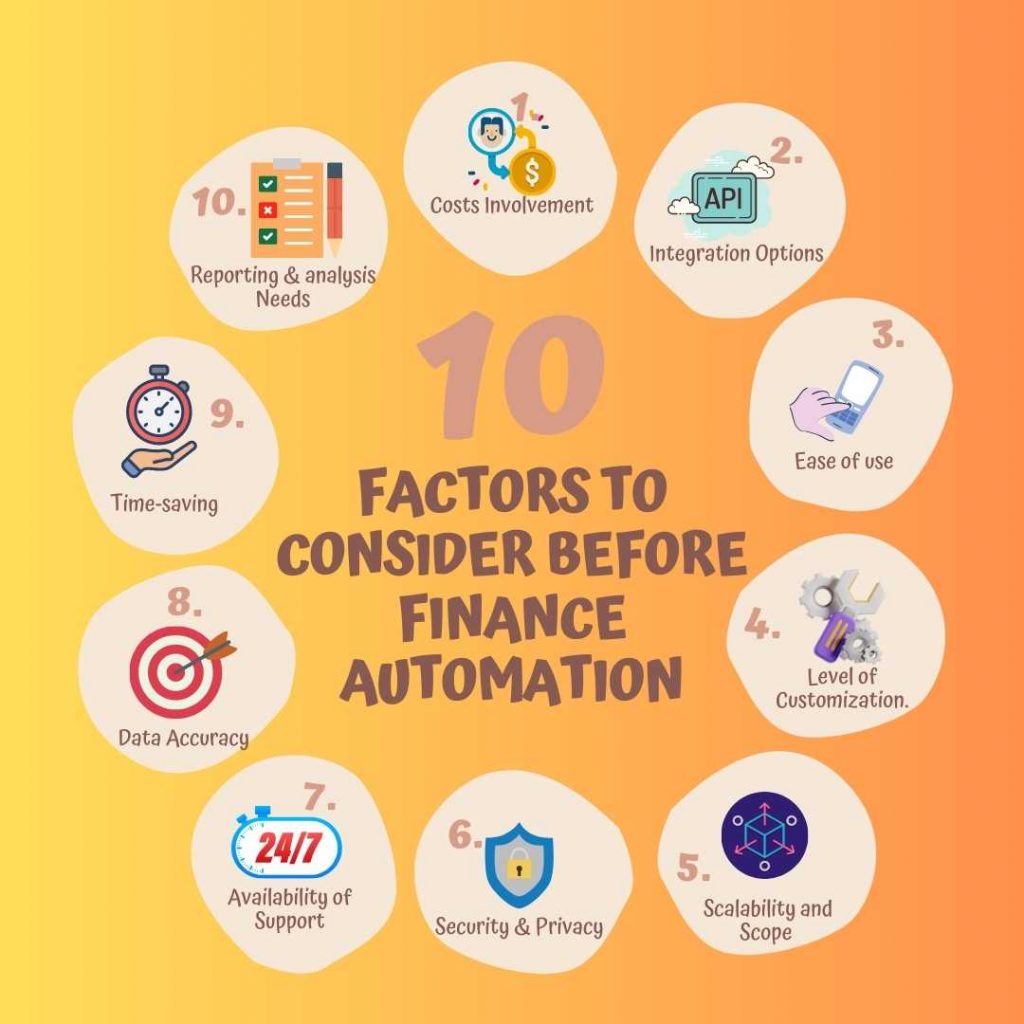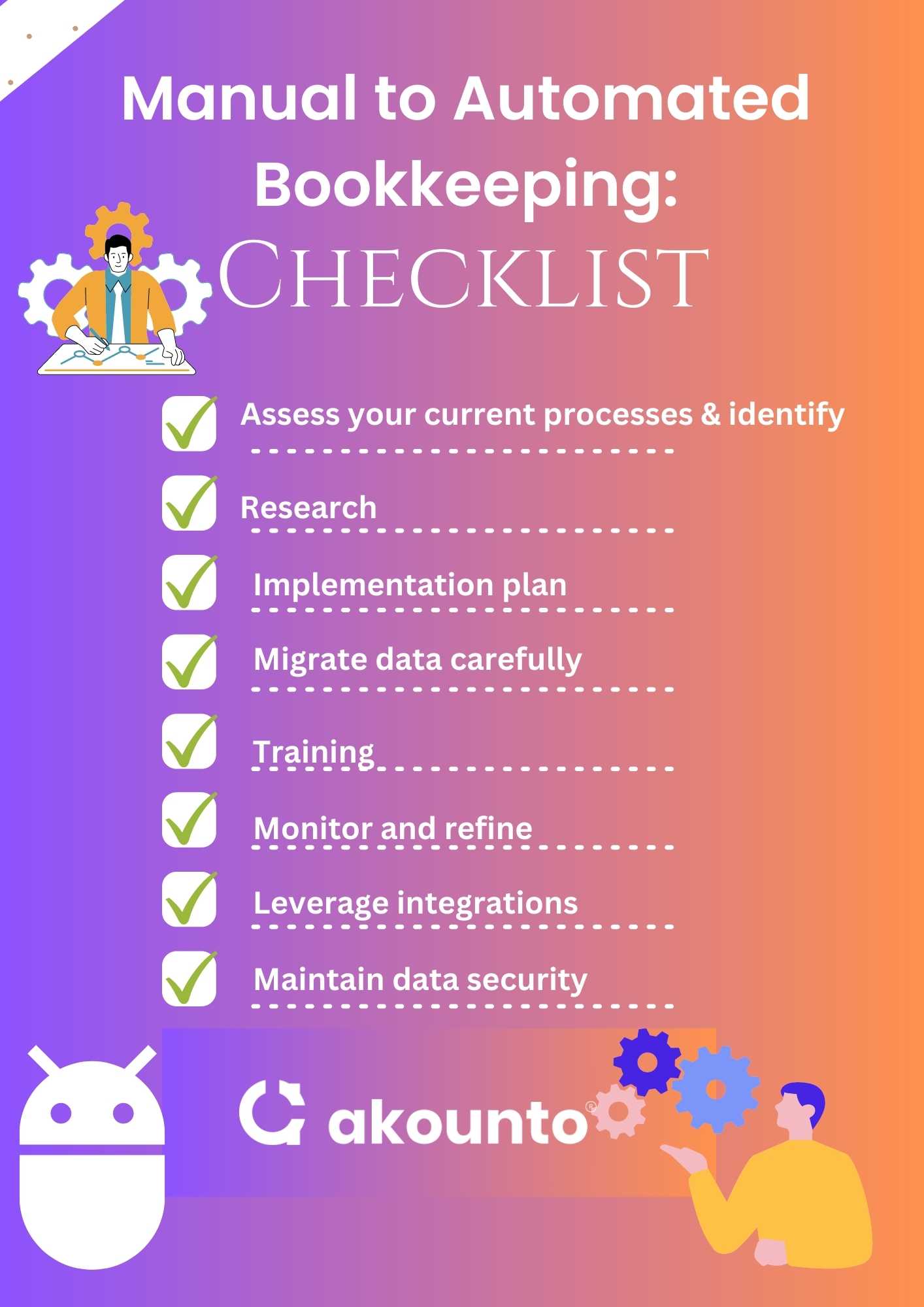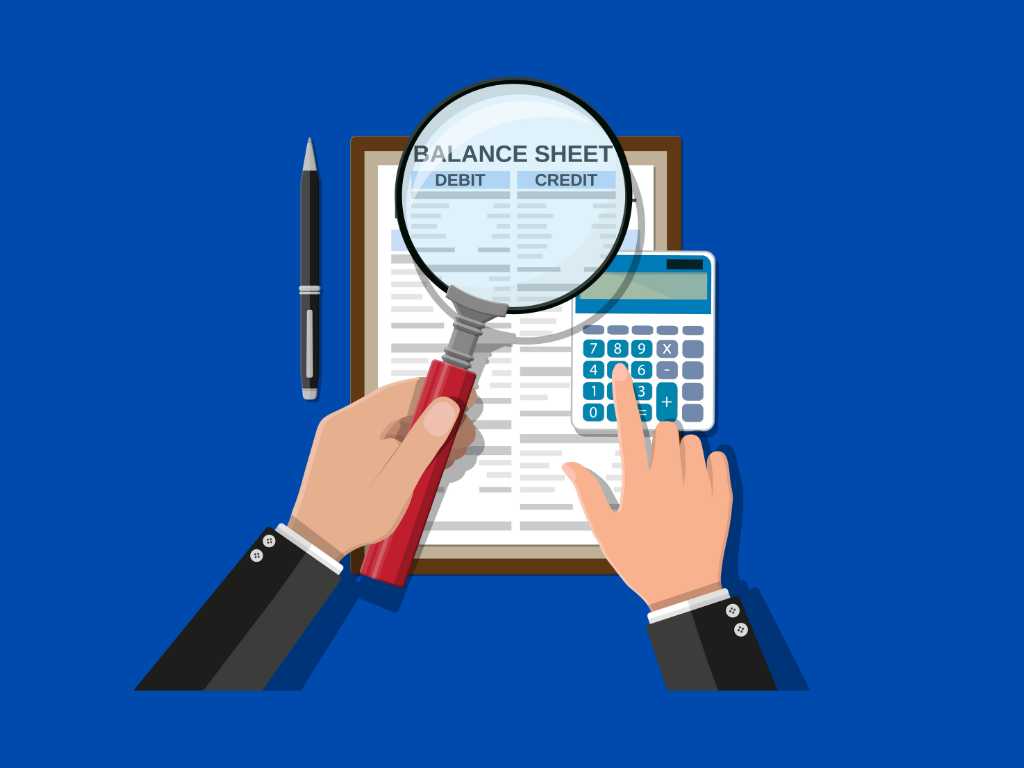What is Automated Bookkeeping?
Automated bookkeeping means using software, bots, or other technologies to automate repetitive, manual, routine, and rule-based recording of financial transactions.
Automation takes on non-productive and repetitive tasks, while humans can focus on more strategic and analytical roles. Thus, with automation in finance and bookkeeping, the human resources earlier involved in merely maintaining books of accounts can now focus more on analytical aspects like cash-flow analysis, tracking working capital cycle, etc.
What’s covered in the article
Automating finance for a small business means using software for managing financial records and processes. But financial automation for a small business depends on:
- Affordability of automation tools, which includes subscription to software or one-time purchase.
- If the scale of existing financial operations is small, then automation will yield limited to no results.
- The scope of increase in financial operations in the near future means deploying technology will give profit in terms of scalability.
- Mode of deployment of automation solutions, i.e., is it cloud-based (SAAS) software, or will it be installed on your PC, integration with other software, etc?
- The learning curve of an accountant, CFO, CEO, and the founder. It will be much preferred if the software is user-friendly, with less learning time and a simple interface and dashboard.
- Rate of digital adoption in industry and the automation ecosystem. Your vendors, banks, and other stakeholders also support technology. If your bank does not provide integration to your payment software, then the payment software is of very little use.
Finance and accounting automation helps maintain accuracy and timeliness and adhere to regulatory compliance.
Many bookkeeping services now offer automated bookkeeping platforms, providing subscription-based bookkeeping/ accounting software and charging less than the salary of an in-house accountant. They also offer additional value-added services like reports, tracking finances, mobile applications to track accounts while you are on the move, etc.
Automated bookkeeping solutions have gained popularity due to machine learning and software automation advancements. These tools can integrate with bank accounts, payment processor accounts, and expense management platforms to automatically sort transactions, track expenses, and provide real-time data analysis.
Which Bookkeeping Functions Can Be Automated for Small Businesses?
- Payroll functions
- Sorting and classifying transactions.
- Payment processes.
- Generating and mailing invoices and sending payment reminders on or before the due date.
- Integrating your software with bank and credit cards so that you can get updated records of cash flows.
- Tracking the working capital cycle
- Inventory management, which includes calculating re-order level, economies of scale, categorizing inventories, etc.
- Managing and automatically paying accounts payables.
- Tagging transactions so that you can get similar kinds of transactions bunched together. Like all tax-related transactions can be filtered.
Factors to Consider for Small Businesses

- Costs: Evaluate the expenses associated with implementing the automation, including subscription fees, setup costs, and potential maintenance charges.
- Integration: Ensure the chosen automated bookkeeping solution integrates seamlessly with your existing accounting tools, bank accounts, and payment processor accounts for a smooth transition.
- Ease of use: Select user-friendly software that requires minimal training for you and your finance team to operate effectively.
- Customization: Look for automated bookkeeping solutions that offer customizable features to accommodate your business’s specific needs and preferences.
- Scalability: Choose a platform that can grow with your business, allowing for easy adjustments as your financial transactions and bookkeeping requirements increase.
- Security: Prioritize software with robust security measures in place to protect sensitive financial data and ensure compliance with industry regulations.
- Support: Opt for providers that offer reliable customer support and ongoing assistance to help troubleshoot issues and ensure a smooth bookkeeping experience.
- Data accuracy: Consider the accuracy and efficiency of the automated bookkeeping platform in minimizing manual errors and streamlining financial records management.
- Time savings: Assess the potential time savings from automating repetitive accounting tasks, allowing you and your team to focus on more strategic business decisions.
- Reporting and analysis: Evaluate the reporting capabilities of the software, ensuring it provides real-time data, financial projections, and insights to support informed decision-making.
Advantages of Automated Bookkeeping
- Efficiency: Automated bookkeeping application streamlines accounting processes and reduces the time spent on manual tasks, enabling small business owners to focus on growth and strategic activities.
- Reduced errors: Automation minimizes errors due to manual data entry and financial record management, ensuring more accurate financial data for decision-making.
- Real-time data access: Automated bookkeeping solutions provide real-time data on business accounts and financial transactions, allowing for better cash flow management and informed decision-making.
- Cost savings: By automating repetitive tasks, small businesses can save on labor costs and reduce the need for additional accounting professionals.
- Enhanced security: Automated bookkeeping platforms often have robust security measures to protect sensitive financial data and ensure regulatory compliance.
Challenges of Automated Bookkeeping
- Initial setup costs: Implementing an automated bookkeeping solution may require initial setup costs and training for small business owners and freelancers to get familiar with the platform.
- Limited customization: Some automated bookkeeping solutions may not offer extensive customization options to cater to unique business requirements or specific industry needs.
- Dependency on technology: Relying heavily on automated bookkeeping can lead to increased dependency on technology, which may pose challenges if software glitches or downtime occur.
- Data privacy concerns: Storing financial data on cloud-based automated bookkeeping platforms may raise concerns about data privacy and security, especially for sensitive financial information.
- Loss of human touch: Automated bookkeeping may reduce the need for human intervention, but it may also result in a loss of valuable insights and expertise from experienced accounting professionals.
- Inaccurate categorization: While automated bookkeeping applications can categorize transactions, occasional errors in categorization may still occur, requiring manual corrections to maintain accurate financial records.
- Integration challenges: Some small businesses and freelancers may face difficulties integrating their existing accounting tools and processes with the new automated bookkeeping setup.
- Limited support: Depending on the software provider, customer support for automated bookkeeping platforms may be limited, causing potential delays in resolving issues and troubleshooting problems.
Steps towards Automated Bookkeeping

- Assess your current processes: Evaluate your existing bookkeeping processes and identify areas where automation could benefit most. This will help you determine which virtual bookkeeping platforms best suit your needs.
- Research available solutions: Thoroughly research various online bookkeeping software and services available in the market. Compare their features, pricing, and integration capabilities to find the one that best aligns with your business requirements.
- Develop an implementation plan: Create a clear plan outlining the steps and timeline for implementing your chosen online bookkeeping solution. Ensure your plan covers data migration, employee training, and process modifications.
- Migrate data carefully: Migrating financial data from manual systems to automated platforms can be complex. Double-check the accuracy of your data and verify that all relevant information has been transferred correctly to minimize the risk of errors.
- Train your team: Provide employees with comprehensive training on the new bookkeeping software, ensuring they are comfortable with the system and understand how it fits into your financial management processes.
- Monitor and refine: After implementing the automation solution, closely monitor its performance and continuously refine your processes. Gather feedback from your team and make necessary adjustments to optimize efficiency and accuracy.
- Leverage integrations: Take advantage of the integration capabilities of the computerized bookkeeping application to connect with other business tools, such as invoicing, expense tracking, and payroll systems. This will create a seamless and efficient financial management ecosystem.
- Maintain data security: Ensure that you choose a platform with robust security measures to protect sensitive financial data and maintain compliance with industry regulations.
Benefits of Using Cloud-Based Software
Cloud-based accounting software solutions enable accounting automation by streamlining the bookkeeping process and minimizing manual data entry. They are designed to handle various bookkeeping tasks, from recording transactions and managing invoices to generating financial statements and reports.
One key advantage of using cloud-based accounting software for bookkeeping automation is the ability to access financial data from anywhere, at any time. This real-time access to information allows business owners and freelancers to make informed decisions and closely monitor their financial health.
The cloud-based software often includes automatic updates and backups, ensuring that users always have access to the latest features and securely stored data.
Many bookkeeping services now incorporate cloud-based accounting software in their offerings, providing a comprehensive solution for clients who want to automate their bookkeeping and accounting tasks.
The services often integrate with other automation software, such as expense tracking and invoicing tools, to create a seamless and efficient financial management system.
Bookkeeping Automation Trends
The world of bookkeeping automation is constantly evolving, with new software tools and technologies being developed to help finance teams and small businesses streamline their business processes. Here are some key trends in bookkeeping automation:
- Artificial Intelligence (AI) and Machine Learning: The integration of AI and machine learning in bookkeeping software tools enables more accurate and efficient data entry, minimizing manual errors and allowing for better analysis of financial data. These technologies also help in predicting future transactions, cash flow, and expenses, assisting in proactive financial planning.
- Reducing Human Error: Digital bookkeeping systems are designed to minimize human error in financial record-keeping by automating repetitive tasks and data entry processes. This not only increases the accuracy of financial data but also frees up time for finance professionals to focus on more strategic tasks.
- Real-Time Financial Data: Bookkeeping automation enables real-time access to financial data, providing small businesses with up-to-date information on their financial health. This helps business owners make informed decisions and plan for future growth.
- Integration of Business Processes: Many bookkeeping automation tools now integrate seamlessly with other business processes, such as invoicing, expense tracking, and payroll management. This integration creates a comprehensive financial management system that streamlines operations and enhances efficiency.
- Cloud-Based Solutions: The shift towards cloud-based bookkeeping software continues, offering users remote access to their financial data and allowing for easier collaboration among finance teams.
- Focus on Data Security: With the increasing reliance on digital solutions, there is a growing emphasis on data security in bookkeeping automation. Developers are constantly working on enhancing security features to protect sensitive financial data and ensure compliance with industry regulations.
Conclusion
Automated bookkeeping offers numerous benefits to small businesses and freelancers, including improved efficiency and reduced errors. By staying informed about the latest trends and leveraging cloud-based accounting software, businesses can optimize their financial management and focus on growth and strategic decision-making.
Visit Akounto and learn you manage your business efficiently.











